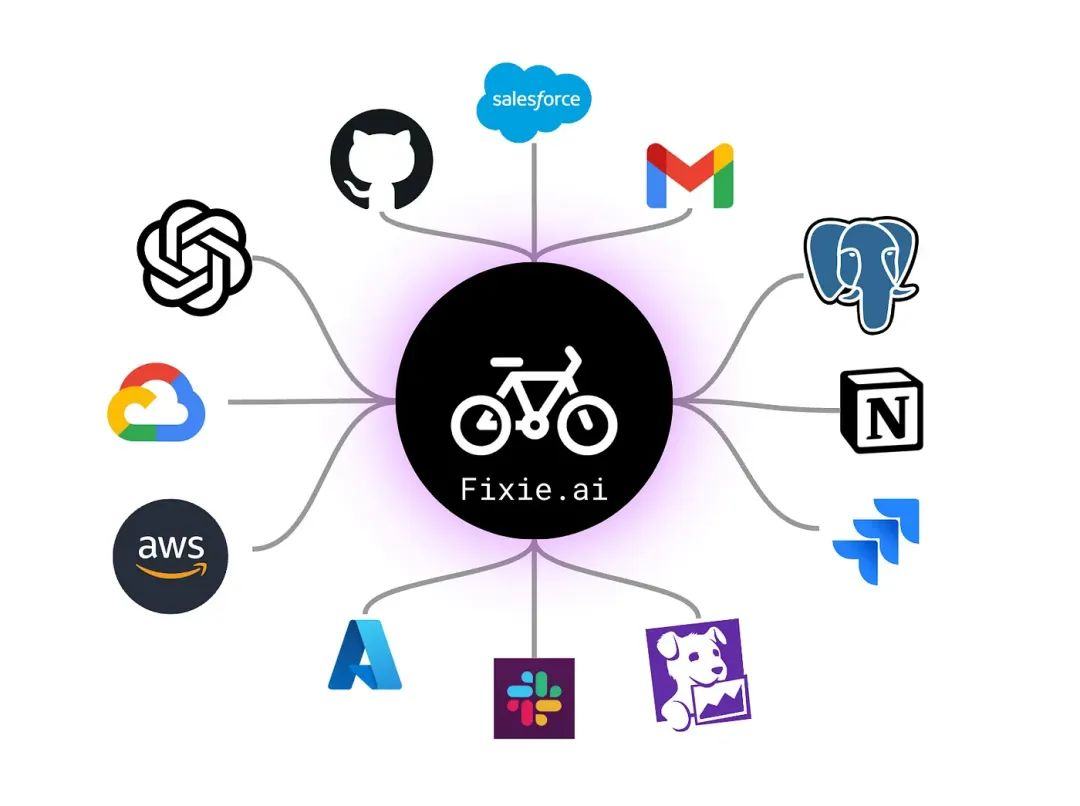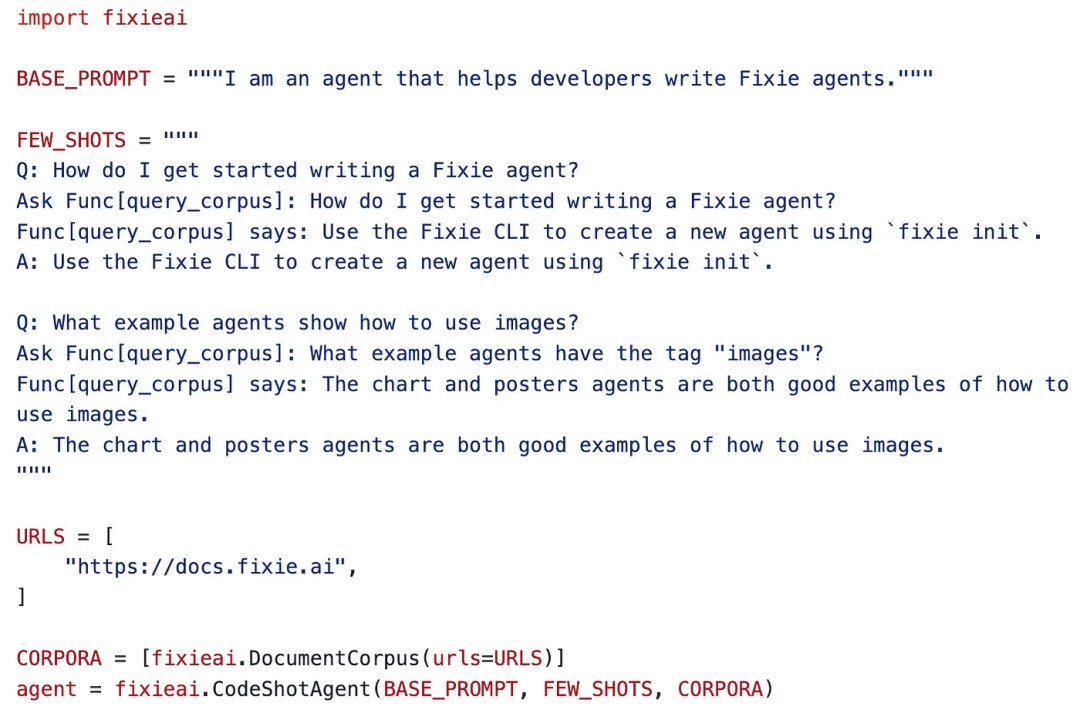OpenAI's Next Major Direction in Entrepreneurship: Former Harvard Computer Professor Secures Investment from Top Silicon Valley VC
-
What is the hottest application form of generative AI today? It might be various Copilots and ChatGPT-like services, with AI Agents certainly being one of them.
OpenAI co-founder Andrej Karpathy once tweeted: "The next frontier in prompt engineering is AutoGPT (Agent)."
At the launch event of Amazon Web Services' Amazon Bedrock platform, the most standout product was Amazon Bedrock Agents, which allows developers to easily create various generative AI applications to accomplish complex tasks.

So, what is an AI Agent? It can be understood as an artificial intelligence system capable of autonomously understanding, planning, and executing complex tasks. AI Agents can operate independently without human control, and by accessing APIs, they can even browse the web, use applications, read and write files, make credit card payments, and more.
A startup called Fixie has made significant strides in the AI Agent field. Founded by a serial entrepreneur and former Harvard computer professor, it secured a $17 million seed round earlier this year, led by Redpoint, with participation from Madrona Venture and current and former executives from companies like Google, Amazon, and Apple.
Fixie was founded by veteran engineers, product leads, and AI experts from Google and Apple. Its primary founder, Matt Welsh (now serving as Chief Architect), is a serial entrepreneur, former Harvard computer professor, and former technical lead at Google and Apple.
The other co-founders of Fixie include CEO Zach Koch, who was previously a Product Director at Shopify and a Product Lead for Google's Chrome and Android teams; CTO Justin Uberti, who led Google's Stadia, Duo, and Hangouts Video teams and is one of the inventors of WebRTC; and Chief AI Scientist Hessam Bagherinezhad, a former AI/ML leader at Apple. The entire founding team is exceptionally impressive.

The founders of Fixie believe that the value of large language models goes beyond text completion—their true potential lies in connecting external APIs and data sources, integrating into business processes, and automating problem-solving.
Fixie is a cloud-based platform where developers can not only build Agents that interact with external systems, data, and tools but also rely on Fixie to handle API integration, data hosting, and other related challenges.
Madrona has invested in Matt Welsh's ventures for the third time (the previous two being Xnor and OctoML). They believe the Fixie team embodies optimism, deep customer understanding and care, and an exceptionally high talent density.
Erica Brescia, Managing Director at Redpoint, stated: "Existing large language models are incredibly powerful and continuously evolving, but their true value emerges when integrated with enterprise data and systems to fundamentally transform business operations. Fixie will achieve precisely this—automating manual work and allowing people to focus on higher-value tasks."
"We believe Fixie will become the standard for building large model-based applications that enhance workflows across every role in an enterprise—ultimately unlocking massive productivity gains," Brescia added.
AI Agents can perform many complex tasks, and while building a single Agent isn't particularly difficult for developers, enterprises need a comprehensive way to define, build, test, deploy, share, secure, manage, and monitor their Agents.
Fixie was founded to help enterprise application developers overcome these challenges. The Fixie platform is a cloud-based PaaS service that enables developers to easily create Agents built on various large models. These Agents can answer questions about private data sources, extract information from historical customer support conversations, and interact with existing enterprise resources through traditional APIs. The platform has open-sourced its SDK and sample code, available on Fixie's GitHub repository.
How Agents Work
Large models possess the capability to learn new skills through examples, a technique known as few-shot learning. With few-shot learning, developers only need to provide a few examples of how to perform new tasks (such as sending emails, operating business software, or accessing the internet), and the large model can learn to execute these tasks.

An individual Agent consists of a base prompt, a set of few-shot examples, and a quote function. The base prompt sets the stage for how the underlying large language model interacts with the external world. The few-shot examples teach the model how to process incoming queries, seek assistance from the quote function, and incorporate return values into its responses.
The Value of the Fixie Platform
Fixie comes with over 30 built-in Agents that can access various systems and tools, including databases, complex APIs (such as GitHub), productivity tools (like Google Calendar), and public data sources like web search and Twitter. The Fixie Agent SDK makes it extremely simple to build custom Agents. Once built, Agents can be deployed to the cloud with a single click, and developers can also create their own Agents for others to use. The platform's capabilities will continue to expand in the future.
On the Fixie platform, each Agent can utilize custom large models. In addition to the default GPT-4 support, the platform can integrate with commercial or open-source models, including AI21's Jurassic-2, GPT-NeoX, or Cohere's Command. Agents can generate and process media in any modality, such as using Stable Diffusion to create images and manipulate them in various ways.
Fixie offers excellent support for ChatGPT's plugin system: users can build a Fixie Agent that calls ChatGPT plugins or create a ChatGPT plugin that interacts with Fixie Agents.
Examples of Agent Usage
Enterprise clients can utilize Fixie-built Agents in areas such as customer support, business automation, business intelligence, content generation, and CRM automation.
For example, using Fixie, enterprise clients can build an Agent that takes customer tickets as input and automates the process of retrieving customer order history, issuing return labels, and generating draft responses to tickets.
Fixie provides a core platform that allows enterprise clients to easily build highly customized, private Agents integrated with their systems. Instead of using vertically integrated "customer ticket AI" products, Fixie enables enterprises to customize every aspect of large model integration with their private data and systems.
Fixie previously hosted a hackathon where teams built various Agents. One team created an email assistant Agent that helps organize Gmail inboxes and generates prompts for composing new emails, allowing users to easily draft messages. Another participant built a movie scene Agent that integrates with Spotify API to search for specific songs based on textual descriptions of movie scenes. Another team developed a YouTube-based Agent that recommends content on specific topics.
Agents represent a fundamental shift in software construction - they are a new form of software. Traditional large software requires significant development resources to maintain each feature, while an Agent can iteratively upgrade its capabilities simply through improvements to its foundational large model or with minimal fine-tuning costs.
Developers can build an Agent to solve a single-point problem or combine multiple Agents to collaboratively address more complex issues.
For entrepreneurs, they can build individual Agents and iterate on them (like BabyAGI) or create platforms like Fixie that enable enterprises and developers to freely develop Agents.
At the beginning of the article, we mentioned AWS's emphasis and investment in Agents. So, with tech giants involved, do startups still have opportunities in this direction?
First, some "bad news" - OpenAI, the leader in generative AI, also places great importance on Agents.
"If a paper proposes a different model training method, OpenAI internally dismisses it as something we've already explored. But when new AI Agents papers come out, we discuss them with great seriousness and excitement," said OpenAI co-founder Andrej Karpathy during an OpenAI hackathon.
OpenAI CEO Sam Altman has also stated on multiple occasions that the era of building massive AI models is over, and AI Agents are the new challenge.
According to The Information, Altman privately told some developers in May that OpenAI aims to transform ChatGPT into a personal work assistant. Insiders also noted that OpenAI has been focusing on how to use chatbots to create autonomous AI Agents, with related features likely to be integrated into ChatGPT.
The good news is, during the same hackathon, Karpathy added: "Ordinary people, entrepreneurs, and geeks have an advantage over companies like OpenAI when it comes to building AI Agents."
Although some industry experts argue that significant improvements in large model capabilities are still needed to achieve usable AI Agents, innovative entrepreneurs who can identify suitable application scenarios should clearly start taking action now.
